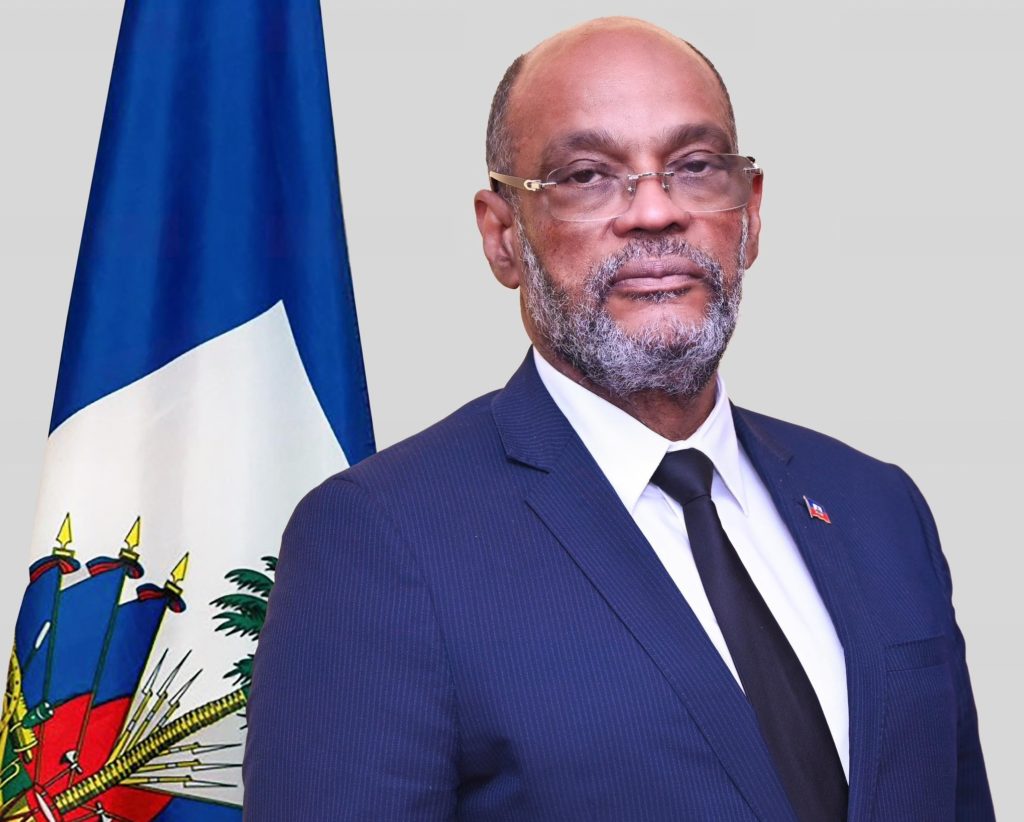
Protests in Haiti against the government and the interim president, Ariel Henry, have left at least six dead on the island and a dozen injured. The demonstrators carried firearms and machetes and demanded that the prime minister and interim president fulfill his commitment to cede power yesterday, February 7.
Henry has been in office for 30 months as prime minister, following the departure of Claude Joseph, also interim president. Haiti has been in chaos since the assassination of President Jovenel Moïse in July 2021, a case for which several people have already been convicted in the USA as perpetrators. Although the total number of those involved in its planning is unknown.
February 7 should mark the departure of President Henry, according to an agreement signed in December 2022 with representatives of political parties, civil society organizations and members of the private sector, under the auspices of the international community.
Demonstrators demand the departure of the interim prime minister
According to the authorities, among the dead are several members of the Brigade de Surveillance des Zones Protected (BSAP), a public entity in charge of environmental protection that has turned into an illegal armed group that has spread terror in Port-au-Prince, the capital.
The dead fell in the midst of clashes with the Haitian police, when they refused to surrender the weapons they were illegally carrying. However, the protests against the current president, initially to demand his departure, quickly turned ugly when news of the violent response of the police began to spread.
In the outskirts of the capital, the citizen protests with the support of the opposition parties, were quickly dispersed after the intervention of the police, who used tear gas.
The conspiratorial shadow of Guy Philippe
In the background of the protests in Haiti lies the struggle between two politicians: the current president Ariel Henry, who does not seem willing to fulfill his commitment to leave power, and Guy Philippe, who has the support of the BSAP, among others.
It is known that Philippe returned to the country in November, after being repatriated by the USA where he was serving a sentence for money laundering, and has remained out of the capital until now. A former politician turned paramilitary and warlord, he was one of the leaders of the 2004 coup against then President Jean-Bertrand Aristide.
Trained by U.S. special forces in Ecuador in the early 1990s, Philippe was chief of police in Haiti’s second city, Cap Haitien, until 2000. At that time he was accused of using his position as a cover to commit various crimes, and was even accused of conspiring against President Rene Preval.
Since then he has led an eventful life, entering and leaving the country illegally, although in 2006 he tried, unsuccessfully, to come to power through democratic means. His candidacy barely won any support. His recent public reappearance in Haiti has provoked this new wave of violent protests in a country that has been in chaos for years.
The Symbolism of February 7
February 7 has a special symbolism in Haiti, because on that day in 1986, the former dictator Jean-Claude Duvalier left power and fled to France. Since then, it has been the date on which, traditionally, democratic presidents are sworn into office in the country. That is why Ariel Henry promised to leave office on that date, although now he does not seem willing to comply with the agreement with the international community and call elections.
The tension had already started a few days before, when Guy Philippe called for “civil disobedience,” yet the outbreak of violence occurred yesterday, coinciding with February 7.
The night before, Philippe appeared on the radio inciting rebellion against the government. “Tomorrow I will be in the streets with my people,” he said, adding that he would be surrounded by security guards.
In a country plunged into chaos, with dozens of illegal armed groups and skyrocketing crime rates, this new social and political outburst does not augur either a de-escalation of violence or a peaceful transition of power.
See all the latest news from Colombia and the world at ColombiaOne.com. Contact our newsroom to report an update or send your story, photos and videos. Follow Colombia One on Google News, Facebook, Instagram, and subscribe here to our newsletter.

